The Best DVDs and Blu-rays of 2015
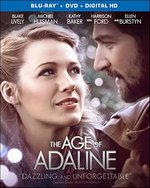 The Age of Adaline (2015) Adaline (Blake Lively) is a 29-year-old who survives a near-death experience and from that day on never grows older. After miraculously remaining that way for almost eight decades, Adaline has lived a solitary existence, never allowing herself to get close to anyone who might reveal her secret. But a chance encounter with charismatic philanthropist Ellis Jones (Michiel Huisman) reignites her passion for life and romance. When a weekend with his parents threatens to uncover the truth, Adaline makes a decision that will change her life forever. A warm-hearted romancer harking back to the 1940s and 1950s melodramas..
The Age of Adaline (2015) Adaline (Blake Lively) is a 29-year-old who survives a near-death experience and from that day on never grows older. After miraculously remaining that way for almost eight decades, Adaline has lived a solitary existence, never allowing herself to get close to anyone who might reveal her secret. But a chance encounter with charismatic philanthropist Ellis Jones (Michiel Huisman) reignites her passion for life and romance. When a weekend with his parents threatens to uncover the truth, Adaline makes a decision that will change her life forever. A warm-hearted romancer harking back to the 1940s and 1950s melodramas..
American Sniper (2014) by Clint Eastwood. U.S. Navy SEAL Chris Kyle (Bradley Cooper) takes his sole mission — protect his comrades — to heart and becomes one of the most lethal snipers in American history. His pinpoint accuracy not only saves countless lives but also makes him a prime target of insurgents. Despite grave danger and his struggle to be a good husband and father to his family back in the States, Kyle serves four tours of duty in Iraq. However, when he finally returns home, he finds that he can’t leave the war behind. Sure-footed, powerful direction by Eastwood and a surpise tour-de-force serious performance by Cooper. Co-stars Sienna Miller.
 Battles Without Honor and Humanity (1973) Kinji Fukasaku (“Battle Royale”) gave the world Japan’s answer to “The Godfather” with this violent yakuza saga, influencing filmmakers from Quentin Tarantino to Takashi Miike. Made within just two years, the five-film series brought a new kind of realism and ferocity to the crime genre in Japan, revitalizing the industry and leading to unprecedented commercial and critical success. Fukasaku and his team broke with the longstanding studio tradition of photo for Battles Without Honor And Humanity BLU-RAY DEBUT casting marquee idols as honorable, kimono-clad heroes, defending their gang bosses against unscrupulous villains, and instead adapted true accounts torn from the headlines, shot in a documentary-like style, and with few clear-cut heroes or villains. The vibrancy and dynamism of the filmmaking, plus its shocking violence, Shakespearean plotlines, and wide tapestry of characters, launched a revolutionary new genre, establishing the series as one of the great masterpieces of world crime cinema.
Battles Without Honor and Humanity (1973) Kinji Fukasaku (“Battle Royale”) gave the world Japan’s answer to “The Godfather” with this violent yakuza saga, influencing filmmakers from Quentin Tarantino to Takashi Miike. Made within just two years, the five-film series brought a new kind of realism and ferocity to the crime genre in Japan, revitalizing the industry and leading to unprecedented commercial and critical success. Fukasaku and his team broke with the longstanding studio tradition of photo for Battles Without Honor And Humanity BLU-RAY DEBUT casting marquee idols as honorable, kimono-clad heroes, defending their gang bosses against unscrupulous villains, and instead adapted true accounts torn from the headlines, shot in a documentary-like style, and with few clear-cut heroes or villains. The vibrancy and dynamism of the filmmaking, plus its shocking violence, Shakespearean plotlines, and wide tapestry of characters, launched a revolutionary new genre, establishing the series as one of the great masterpieces of world crime cinema.
 The Beast (1975 — France) Walerian Borowczyk’s most notorious and controversial film wildly re-works the classic “Beauty and the Beast” story into a very adult fairy tale, a parody of pornographic tropes and an assault on notions of “good taste.” Bestial dreams interrupt the venal plans of a French aristocrat attempting to save a crumbling mansion by marrying off his deformed son, Mathurin, to a horny American heiress, Lucy. Yet Mathurin seems more interested in his horses than in his bride-to-be, and when Lucy finds out about the story of his 18th-century ancestor Romilda copulating with the titular beast, it sparks to life one of the most outrageous dream sequences in cinema history. A huge hit in France that was extensively censored and banned elsewhere, “The Beast” broke new ground in sexual explicitness and remains a truly startling experience even today.
The Beast (1975 — France) Walerian Borowczyk’s most notorious and controversial film wildly re-works the classic “Beauty and the Beast” story into a very adult fairy tale, a parody of pornographic tropes and an assault on notions of “good taste.” Bestial dreams interrupt the venal plans of a French aristocrat attempting to save a crumbling mansion by marrying off his deformed son, Mathurin, to a horny American heiress, Lucy. Yet Mathurin seems more interested in his horses than in his bride-to-be, and when Lucy finds out about the story of his 18th-century ancestor Romilda copulating with the titular beast, it sparks to life one of the most outrageous dream sequences in cinema history. A huge hit in France that was extensively censored and banned elsewhere, “The Beast” broke new ground in sexual explicitness and remains a truly startling experience even today.
Birdman or (The Unexpected Virtue of Ignorance) (2014) by Alejandro Gonzalez Inarritu. Former cinema superhero Riggan Thomson (Michael Keaton) is mounting an ambitious Broadway production that he hopes will breathe new life into his stagnant career. It’s risky, but he hopes that his creative gamble will prove that he’s a real artist and not just a washed-up movie star. As opening night approaches, a castmate is injured, forcing Riggan to hire an actor (Edward Norton) who is guaranteed to shake things up. Meanwhile, Riggan must deal with his girlfriend, daughter and ex-wife. A cinematic display of technical expertise, with great acting by Keaton and Norton. Co-stars Zach Galifianakis, Andrea Riseborough, Amy Ryan, Emma Stone, Naomi Watts, and Lindsay Duncan.
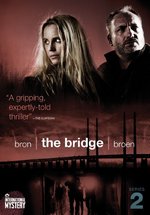 The Bridge: Season 2 (2013) The Danish-Swedish crime series ups the stakes, and the body count, as a shipwreck leads the international team of detectives to forge one hell of a partnership. An abandoned tanker ship crashes into the Oresund bridge, on the border between Sweden and Denmark. Onboard are five Swedish and Danish youths, chained below deck, unconscious. Investigating the incident is Scandinavia’s oddest couple: Swedish detective Saga Noren, hampered by primitive social skills, and Martin Rohde from Denmark, still reeling from the death of his son. More bizarre crimes follow the tanker incident and they discover they’re up against a deranged activist group who will stop at nothing to convey their message: “The World is Bigger than Us.” As the body count escalates, Saga and Martin know that they’re running out of time and that the next attack could result in the death of thousands. In Danish and Swedish with English subtitles.
The Bridge: Season 2 (2013) The Danish-Swedish crime series ups the stakes, and the body count, as a shipwreck leads the international team of detectives to forge one hell of a partnership. An abandoned tanker ship crashes into the Oresund bridge, on the border between Sweden and Denmark. Onboard are five Swedish and Danish youths, chained below deck, unconscious. Investigating the incident is Scandinavia’s oddest couple: Swedish detective Saga Noren, hampered by primitive social skills, and Martin Rohde from Denmark, still reeling from the death of his son. More bizarre crimes follow the tanker incident and they discover they’re up against a deranged activist group who will stop at nothing to convey their message: “The World is Bigger than Us.” As the body count escalates, Saga and Martin know that they’re running out of time and that the next attack could result in the death of thousands. In Danish and Swedish with English subtitles.
Citizenfour (2014) Real-life international thriller that unfolds by the minute. With unprecedented access, this behind-the-scenes documentary follows award-winning director Laura Poitras and journalist Glenn Greenwald’s remarkable encounters with whistleblower Edward Snowden in a Hong Kong hotel room as he hands over classified documents that provide evidence of mass indiscriminate and illegal invasions of privacy by the National Security Agency (NSA).
Coherence (2013) Strange things begin to happen when a group of friends gather for a dinner party on an evening when a comet is passing overhead and they experience a troubling chain of reality bending events and doppelgangers. A great low-budget debut by James Ward Byrkit. Stars Emily Baldoni, Maury Sterling, Nicholas Brendon, Lorene Scafaria.
 Cop Car (2015) A corrupt small-town sheriff (Kevin Bacon) is on the hunt for two runaway kids who took his car on a joyride in this unnervingly funny thriller. When a pair of 10-year-olds find an abandoned cop car in a field and take it for a joyride, it seems like they could kill themselves at any moment. But things only get worse when the small-town sheriff goes looking for his missing car — and the illicit cargo he left in the trunk — and the kids find themselves at the center of a deadly game of cat and mouse they don’t understand. Co-stars James Freedson-Jackson, Hays Wellford, Shea Wigham, Camryn Manheim.
Cop Car (2015) A corrupt small-town sheriff (Kevin Bacon) is on the hunt for two runaway kids who took his car on a joyride in this unnervingly funny thriller. When a pair of 10-year-olds find an abandoned cop car in a field and take it for a joyride, it seems like they could kill themselves at any moment. But things only get worse when the small-town sheriff goes looking for his missing car — and the illicit cargo he left in the trunk — and the kids find themselves at the center of a deadly game of cat and mouse they don’t understand. Co-stars James Freedson-Jackson, Hays Wellford, Shea Wigham, Camryn Manheim.
Ex Machina (2015) by Alex Garland (screenwriter for “28 Days Later,” “Sunshine” and “Never Let Me Go”). Caleb Smith (Domhnall Gleeson), a programmer at an internet-search giant, wins a competition to spend a week at the private mountain estate of the company’s brilliant and reclusive CEO, Nathan Bateman (Oscar Isaac), where he will be the human component in a Turing Test — charged with evaluating the capabilities of Ava (Alicia Vikander), a breathtaking A.I. whose emotional intelligence proves more sophisticated — and more deceptive — than the two men could have imagined. A sci-fi thriller of ideas.
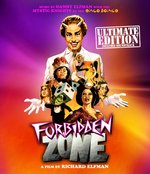 Forbidden Zone (1980) Starring Herve Villechaise, Susan Tyrell, Matthew Bright and Marie-Pascale Elfman, directed by Richard Elfman and featuring original music by Danny Elfman. A filmed version of the cabaret show created by the Mystic Knights of the Oingo Boingo. A mysterious door leads to the Sixth Dimension and sexy, beautiful young “Frenchy” slides through cosmic intestines into an insane subterranean world ruled by a horny little king and his jealous queen. Chicken-boy comes to the rescue, only to have his head cut off by the soul-singing Devil himself — played by Danny Elfman. Frog butlers, topless princesses and rioting school kids sing and dance in unforgettable musical numbers by Elfman, Cab Calloway and Josephine Baker. Includes both the original black & white plus the new colorized version.
Forbidden Zone (1980) Starring Herve Villechaise, Susan Tyrell, Matthew Bright and Marie-Pascale Elfman, directed by Richard Elfman and featuring original music by Danny Elfman. A filmed version of the cabaret show created by the Mystic Knights of the Oingo Boingo. A mysterious door leads to the Sixth Dimension and sexy, beautiful young “Frenchy” slides through cosmic intestines into an insane subterranean world ruled by a horny little king and his jealous queen. Chicken-boy comes to the rescue, only to have his head cut off by the soul-singing Devil himself — played by Danny Elfman. Frog butlers, topless princesses and rioting school kids sing and dance in unforgettable musical numbers by Elfman, Cab Calloway and Josephine Baker. Includes both the original black & white plus the new colorized version.
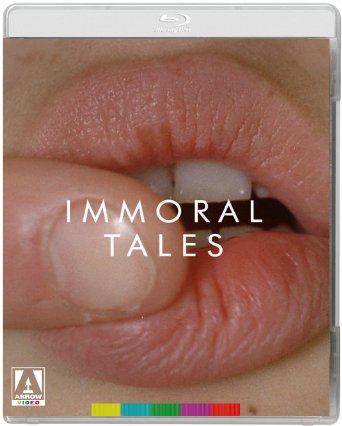 Immoral Tales (1974 — France) Walerian Borowczyk’s first explicitly erotic feature, “Immoral Tales” presents a veritable cavalcade of depravity: cosmic fellatio, transcendental masturbation, blood-drenched lesbianism and papal incest. It tells four stories, each delving back further in time, as if to suggest that the same issues recur constantly throughout human civilization, whether involving notorious historical figures like Lucrezia Borgia and Erzsebet Bathory, or present-day teenagers. Capitalizing on the relaxation of censorship laws, “Immoral Tales” would transform Borowczyk’s image from brilliant but obscure avant-garde artist to one of Europe’s most confrontational filmmakers when it came to trampling on sexual taboos.
Immoral Tales (1974 — France) Walerian Borowczyk’s first explicitly erotic feature, “Immoral Tales” presents a veritable cavalcade of depravity: cosmic fellatio, transcendental masturbation, blood-drenched lesbianism and papal incest. It tells four stories, each delving back further in time, as if to suggest that the same issues recur constantly throughout human civilization, whether involving notorious historical figures like Lucrezia Borgia and Erzsebet Bathory, or present-day teenagers. Capitalizing on the relaxation of censorship laws, “Immoral Tales” would transform Borowczyk’s image from brilliant but obscure avant-garde artist to one of Europe’s most confrontational filmmakers when it came to trampling on sexual taboos.
Inherent Vice (2014) directed by Paul Thomas Anderson. A fairly ambitious and faihful adaptation of Thomas Pynchon’s novel. In a California beach community, private detective Larry “Doc” Sportello (Joaquin Phoenix) tends to work his cases through a smoky haze of marijuana. One day, Shasta, a former lover, arrives out of the blue to plead for Doc’s help; it seems that Shasta’s current beau, rich real-estate tycoon Mickey Wolfmann, has a wife who may be plotting to commit him to a mental hospital. When Mickey and Shasta both disappear, Doc navigates a psychedelic world of surfers, stoners and cops to solve the case. Co-stars Josh Brolin, Owen Wilson, Katherine Waterston, Reese Witherspoon, Benicio Del Toro, Martin Short, Jena Malone, Joanna Newsom.
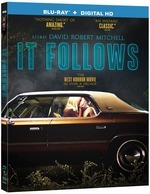 It Follows (2015) A young woman is followed by an unknown supernatural force after getting involved in a sexual encounter. For 19-year-old Jay (Maika Monroe), the fall should be about school, boys and weekends at the lake. Yet, after a seemingly innocent sexual encounter she suddenly finds herself plagued by nightmarish visions; she can’t shake the sensation that someone, or something — death — is following her. As the threat closes in, Jay and her friends must somehow escape the horrors that are only a few steps behind. A critically acclaimed breakout movie and one of the highest grossing independent films of the year.
It Follows (2015) A young woman is followed by an unknown supernatural force after getting involved in a sexual encounter. For 19-year-old Jay (Maika Monroe), the fall should be about school, boys and weekends at the lake. Yet, after a seemingly innocent sexual encounter she suddenly finds herself plagued by nightmarish visions; she can’t shake the sensation that someone, or something — death — is following her. As the threat closes in, Jay and her friends must somehow escape the horrors that are only a few steps behind. A critically acclaimed breakout movie and one of the highest grossing independent films of the year.
John Wick (2014) Got to hand it to Keanu Reeves: he’s successfully traveled the cinematic road from teen goofball to melodramatic heartthrob to sci-fi hero to action star. He’s at his murderous best in this reveenge thriller that has spawned two sequels — this is the best of the lot. Legendary assassin John Wick (Reeves) retired from his violent career after marrying the love of his life. Her sudden death leaves John in deep mourning. When sadistic mobster Iosef Tarasov (Alfie Allen) and his thugs steal John’s prized car and kill the puppy that was a last gift from his wife, John unleashes the remorseless killing machine within and seeks vengeance. Meanwhile, Iosef’s father (Michael Nyqvist) — John’s former colleague — puts a huge bounty on John’s head. Co-stars Adrianne Palicki, Bridget Moynahan, Dean Winters, Ian McShane, John Leguizamo and Willem Dafoe.
Kumiko: The Treasure Hunter (2014) Kumiko (Rinko Kikuchi) is a lonely Japanese woman who discovers a hidden copy of “Fargo” (1996) on VHS and mistakes it for a documentary. In particular she’s fixated on the scene where a suitcase of stolen cash has been buried in North Dakota’s bleak landscape. Believing this treasure to be real and waiting to be discovered, Kumiko leaves Tokyo and her beloved rabbit Bunzo behind to recover it — and finds herself on a dangerous adventure unlike anything she’s seen in the movies. Inspired by an urban legend, “Kumiko” is a beguiling journey of determination and delusion. Sean Porter’s cinematography has created scenes of stark, cold beauty as we follow Kumiko’s dogged, misguided journey through the snowy countryside.
La Grande Bouffe (1973 — France/Italy) The most famous film by Italian provocateur Marco Ferreri (“Dillinger is Dead”), “La Grande Bouffe” was reviled on its release for its perversity, decadence and attack on the bourgeoisie — yet it won the prestigious FIPRESCI prize after its controversial screening at the Cannes Film Festival. Four friends, played by international superstars Marcello Mastroianni, Michel Piccoli, Ugo Tognazzi and Philippe Noiret, retreat to a country mansion where they are determined to eat themselves to death whilst engaging in group sex with prostitutes and a local school teacher (Andrea Ferreol), who seems to be up for anything. At once jovial and sinister, the film’s jet-black humor has a further twist as the reputed actors (whose characters use their own names) buck their respectable trend for a descent into fart-filled chaos that delivers a feast for the eyes and mind.
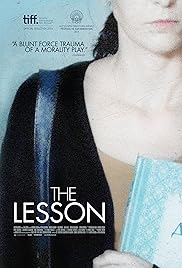 The Lesson (2014 — Bulgaria) In a small Bulgarian town, Nadezhda is an honest, hard-working elementary school teacher struggling to keep her life together. In her class, she looks for a robber among her students so she can teach him a lesson about right and wrong. But with the home she shares with her husband and young daughter on the brink of repossession and no money to her name, she resorts to measures that her former self, untouched by the realities of economic desperation and moral compromise, would have found depraved — she makes one last extreme effort to secure the money she needs. From Bulgarian filmmakers Kristina Grozeva and Petar Valchanov, whose films shine a satiric light on corruption and ethical failings.
The Lesson (2014 — Bulgaria) In a small Bulgarian town, Nadezhda is an honest, hard-working elementary school teacher struggling to keep her life together. In her class, she looks for a robber among her students so she can teach him a lesson about right and wrong. But with the home she shares with her husband and young daughter on the brink of repossession and no money to her name, she resorts to measures that her former self, untouched by the realities of economic desperation and moral compromise, would have found depraved — she makes one last extreme effort to secure the money she needs. From Bulgarian filmmakers Kristina Grozeva and Petar Valchanov, whose films shine a satiric light on corruption and ethical failings.
Leviathan (2014 — Russia) In a small coastal town in Russia an ordinary family lives quietly: Kolya (Aleksey Serebryakov), his wife Lilya, and their teenage son Roma. The family is haunted by a local corrupt mayor who’s trying to take away Kolya’s business, house, and precious land. But Kolya calls in an old friend, now an authoritative attorney, for help, and together they fight back and collect dirt on the mayor … but fate does not seem to be on Kolya’s side. A strange social satire.
Lucy (2014) by Luc Besson. When a boyfriend tricks Lucy (Scarlett Johansson) into delivering a briefcase to a supposed business contact, the once-carefree student is abducted by thugs who intend to turn her into a drug mule. She is surgically implanted with a package containing a powerful chemical, but it leaks into her system, giving her superhuman abilities, including telekinesis and telepathy. With her former captors in pursuit, Lucy seeks out a neurologist (Morgan Freeman), who she hopes will be able to help her. A bit silly at times but hey, it’s Luc Besson and Scarlett Johansson.
Mad Max: Fury Road (2015) by George Miller, returning to the franchise he created in 1979, this time with a cast of females that take the Max Max mantle to a new level. Years after the collapse of civilization, the tyrannical Immortan Joe enslaves apocalypse survivors inside the desert fortress the Citadel. When the warrior Imperator Furiosa (Charlize Theron) leads the despot’s five wives in a daring escape, she forges an alliance with Max Rockatansky (Tom Hardy), a loner and former captive. Fortified in the massive, armored truck the War Rig, they try to outrun the ruthless warlord and his henchmen in a deadly high-speed chase through the Wasteland.
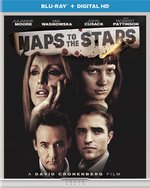 Maps to the Stars (2015) by David Cronenberg. The Weiss family are making their way in Hollywood rife with money, fame, envy, and relentless hauntings. Stafford Weiss (John Cusack) is a famed TV self-help therapist with an A-list celebrity clientele. His wife, Cristina (Olivia Williams), has her work cut out managing the career of their disaffected child-star son, Benjie (Evan Bird), a fresh graduate of rehab at age 13. Unbeknownst to them, another member of the Weiss family has arrived in town — mysteriously scarred and tormented Agatha (Mia Wasikowska), just released from a psych ward and ready to start again. She soon works her way into a friendship with a limo driver and aspiring actor (Robert Pattinson) and becomes personal assistant to unraveling actress Havana Segrand (Julianne Moore), who is beset by the ghost of her legendary mother, Clarice (Sarah Gadon). But Agatha is on a quest for redemption — and even in this realm of the artificial, and the unearthly, she’s determined to find it, no matter what it takes. A Hollywood fix for Cronenberg fans and much better than most reviewers let on.
Maps to the Stars (2015) by David Cronenberg. The Weiss family are making their way in Hollywood rife with money, fame, envy, and relentless hauntings. Stafford Weiss (John Cusack) is a famed TV self-help therapist with an A-list celebrity clientele. His wife, Cristina (Olivia Williams), has her work cut out managing the career of their disaffected child-star son, Benjie (Evan Bird), a fresh graduate of rehab at age 13. Unbeknownst to them, another member of the Weiss family has arrived in town — mysteriously scarred and tormented Agatha (Mia Wasikowska), just released from a psych ward and ready to start again. She soon works her way into a friendship with a limo driver and aspiring actor (Robert Pattinson) and becomes personal assistant to unraveling actress Havana Segrand (Julianne Moore), who is beset by the ghost of her legendary mother, Clarice (Sarah Gadon). But Agatha is on a quest for redemption — and even in this realm of the artificial, and the unearthly, she’s determined to find it, no matter what it takes. A Hollywood fix for Cronenberg fans and much better than most reviewers let on.
Miami Blues (1990) A great cult favorite. Veteran criminal Frederick Frenger, Jr. (Alec Baldwin) has moved to Miami to get a fresh start … at robbing a whole new set of people. But when his streetwalker-gone-straight wife (Jennifer Jason Leigh) begins to suspect his criminal behavior, and an obsessed cop (Fred Ward) begins to close in, he’ll need a lot more than luck and a bogus badge to escape a crossfire hotter than the barrel of a smoking gun. In a Blu-ray debut.
 Stray Cat Rock Limited Edition (1970-71 — Japan) The “Stray Cat Rock” series stars Meiko Kaji who, with these five films, began her reign as the bad-ass action queen of the era. In these five tales of rebellious youth she stars alongside the gorgeous Bunjaku Han and Tatsuya Fuji. In “Delinquent Girl Boss,” a girl gang goes up against the Seiyu Group criminal organization. In “Wild Jumbo,” Kaji and the gang photo for Stray Cat Rock Limited Editionget involved in a kidnapping and the robbery of a religious organization. In “Sex Hunter,” Kaji’s girl gang goes up against The Eagles, a group led by Fuji where sex and violence erupt over the treatment of “half-breeds.” In “Machine Animal,” gang rivalry is once again the focus with two gangs pursuing some LSD pushers looking to move a big score. The series swansong, “Beat ’71,” sees Kaji framed and sent to prison by her boyfriend’s father. Directed by genre veterans Yasuharu Hasebe (“Massacre Gun,” “Retaliation”) and Toshiya Fujita (“Lady Snowblood”), the films feature a psychedelic mix of girl gangs, bikers, sex, drugs and rock ‘n’ roll with plenty of ass-kicking to boot, all captured in a delirious mash-up of pop aesthetics including split screens, freeze frames, injections of color, frenetic editing and dizzying angles, making these films a riotous joy from beginning to end.
Stray Cat Rock Limited Edition (1970-71 — Japan) The “Stray Cat Rock” series stars Meiko Kaji who, with these five films, began her reign as the bad-ass action queen of the era. In these five tales of rebellious youth she stars alongside the gorgeous Bunjaku Han and Tatsuya Fuji. In “Delinquent Girl Boss,” a girl gang goes up against the Seiyu Group criminal organization. In “Wild Jumbo,” Kaji and the gang photo for Stray Cat Rock Limited Editionget involved in a kidnapping and the robbery of a religious organization. In “Sex Hunter,” Kaji’s girl gang goes up against The Eagles, a group led by Fuji where sex and violence erupt over the treatment of “half-breeds.” In “Machine Animal,” gang rivalry is once again the focus with two gangs pursuing some LSD pushers looking to move a big score. The series swansong, “Beat ’71,” sees Kaji framed and sent to prison by her boyfriend’s father. Directed by genre veterans Yasuharu Hasebe (“Massacre Gun,” “Retaliation”) and Toshiya Fujita (“Lady Snowblood”), the films feature a psychedelic mix of girl gangs, bikers, sex, drugs and rock ‘n’ roll with plenty of ass-kicking to boot, all captured in a delirious mash-up of pop aesthetics including split screens, freeze frames, injections of color, frenetic editing and dizzying angles, making these films a riotous joy from beginning to end.
10 Cloverfield Lane (2016) After surviving a car accident, Michelle (Mary Elizabeth Winstead) wakes up to find herself in an underground bunker with two men. Howard (John Goodman) tells her that a massive chemical attack has rendered the air unbreathable, and their only hope of survival is to remain inside. Despite the comforts of home, Howard’s controlling and menacing nature makes Michelle want to escape. But if you know anything about “Cloverfield,” you know that there’s more to that than meets the eye. After taking matters into her own hands, the young woman finally discovers the truth about the outside world. Claustrophobic thriller has Winstead steal the show as she fights back against her captor.
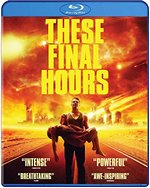 These Final Hours (2014 — Australia) For something completely different, take a look at “These Final Hours,” a low-budget Australian end-of-the-world drama that kind of mixes “On the Beach” with a taste of “Mad Max.” After an asteroid lands in the North Atlantic, a firestorm of destruction moves around the world, wiping out the Americas, Africa, Europe and Asia, with the last stop on the road to total destruction being Australia. With just 12 hours left to go before the end of the world, the citizens of Perth celebrate in a variety of ways: murder, suicide, sexual perversions and a gigantic party to end all parties. One such partygoer is James (Nathan Phillips), a self-absorbed hooligan who leaves his pregnant girlfriend to meet up with his mates at an end-of-the-world affair. As he travels through the now lawless and chaotic city, he meets all sorts of unsavory situations and characters, eventually saving a little girl from a pair of predators. The girl begs him to help her find her father — whom she was separated from — and James — against his “better” judgement — takes her with him. He ends up at the party — a debauched orgy of Russian roulette, sex and drugs — but discovers that there’s a better way in which to celebrate the end of existence. Despite some predictable and sentimental situations, this is an absorbing look at human nature under fire (so to speak), with beautiful moments co-existing with the ugly (just like in real life). The movie sputters here and there but overall it’s a riveting, straight ahead trip through a blood-soaked world that, despite its shortcomings, offers redemption. An auspicious outing from young Australian director-writer Zak Hilditch (with superb cinematography by Bonnie Elliott).
These Final Hours (2014 — Australia) For something completely different, take a look at “These Final Hours,” a low-budget Australian end-of-the-world drama that kind of mixes “On the Beach” with a taste of “Mad Max.” After an asteroid lands in the North Atlantic, a firestorm of destruction moves around the world, wiping out the Americas, Africa, Europe and Asia, with the last stop on the road to total destruction being Australia. With just 12 hours left to go before the end of the world, the citizens of Perth celebrate in a variety of ways: murder, suicide, sexual perversions and a gigantic party to end all parties. One such partygoer is James (Nathan Phillips), a self-absorbed hooligan who leaves his pregnant girlfriend to meet up with his mates at an end-of-the-world affair. As he travels through the now lawless and chaotic city, he meets all sorts of unsavory situations and characters, eventually saving a little girl from a pair of predators. The girl begs him to help her find her father — whom she was separated from — and James — against his “better” judgement — takes her with him. He ends up at the party — a debauched orgy of Russian roulette, sex and drugs — but discovers that there’s a better way in which to celebrate the end of existence. Despite some predictable and sentimental situations, this is an absorbing look at human nature under fire (so to speak), with beautiful moments co-existing with the ugly (just like in real life). The movie sputters here and there but overall it’s a riveting, straight ahead trip through a blood-soaked world that, despite its shortcomings, offers redemption. An auspicious outing from young Australian director-writer Zak Hilditch (with superb cinematography by Bonnie Elliott).
![Two Days, One Night [Blu-ray]](https://m.media-amazon.com/images/I/81B5t6Dv5vL._AC_UY218_.jpg) Two Days, One Night (2014 — Belgium) Sandra (Marion Cotillard), a young Belgian mother on sick leave from her job, discovers that her workmates have opted for a significant pay bonus, in exchange for her dismissal. She has only one weekend to convince her colleagues to give up their bonuses so that she can keep her job. Another honest, affecting, working-class portrait by Jean-Pierre and Luc Dardenne.
Two Days, One Night (2014 — Belgium) Sandra (Marion Cotillard), a young Belgian mother on sick leave from her job, discovers that her workmates have opted for a significant pay bonus, in exchange for her dismissal. She has only one weekend to convince her colleagues to give up their bonuses so that she can keep her job. Another honest, affecting, working-class portrait by Jean-Pierre and Luc Dardenne.
What We Do in the Shadows (2015 — New Zealand) was definitely the sleeper hit of the year, crossing over from horror cultists to mainstream moviegoers. The wacky film — imagine, if you will, a cross between “Borak” and “The Adams Family,” only much, much better — is a New Zealand indie outing by Jemaine Clement and Taika Waititi, creators of the HBO hit series “Flight of the Conchords.” It’s at once a very, very funny send-up of vampire films as well as a self-referential satire of the whole horror cult genre. The film — a mockumentary (in which the camera crew wear garlic and crucifixes) follows an unhip quartet of vampire friends as they go about their nightly routines — paying bills, doing the dishes, hunting for fresh blood. Though they’re centuries old, none of them have kept up with the latest trends in technology or fashion, and the gags mount as the ageless vampires have difficulty maneuvering through 21st Century Wellington. And problems arise when they “turn” a young hipster, who has his own views on how a vampire should live. It’s all outrageous and hilarious.
Wild Tales (2014 — Argentina) Six short stories involving distressed people, outrgeously written and directed. Inequality, injustice and the demands of the world we live in cause stress and depression for many people. Some of them, however, explode. This is a movie about those people, a fresco of rage, fury, deception and revenge. A lover’s betrayal, a return to a repressed past and the violence woven into everyday encounters drive the characters to madness as they cede to the undeniable pleasure of losing control.
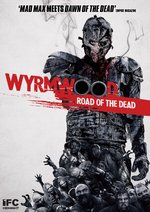 Wyrmood: Road of the Dead (2014) In the aftermath of a comet breaking up over Earth, most of the planet’s population quickly succumbs to a strange disease which turns them into “zombies.” Trapped in a wilderness teeming with the living dead, one of the survivors, Barry, has lost everything except his sister, Brooke. But Brooke is kidnapped by a gang of paramilitary thugs and dragged off to a terrifying medical lab run by a psychotic “doctor” who is performing deranged experiments on plague survivors. As Brooke struggles to devise an escape plan, she realizes that the doctor’s experiments have given her strange powers over his zombie captives. Unaware of his sister’s new powers, Barry teams up with fellow survivors to rescue her and protect what family he has left. An interesting take on the zombie genre.
Wyrmood: Road of the Dead (2014) In the aftermath of a comet breaking up over Earth, most of the planet’s population quickly succumbs to a strange disease which turns them into “zombies.” Trapped in a wilderness teeming with the living dead, one of the survivors, Barry, has lost everything except his sister, Brooke. But Brooke is kidnapped by a gang of paramilitary thugs and dragged off to a terrifying medical lab run by a psychotic “doctor” who is performing deranged experiments on plague survivors. As Brooke struggles to devise an escape plan, she realizes that the doctor’s experiments have given her strange powers over his zombie captives. Unaware of his sister’s new powers, Barry teams up with fellow survivors to rescue her and protect what family he has left. An interesting take on the zombie genre.
And don’t forget the following Criterion releases:
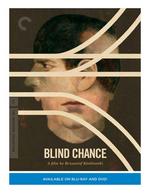 Blind Chance (1981) Before he stunned the cinematic world with the epic “The Decalogue” and the “Three Colors” trilogy, the great Polish filmmaker Krzysztof Kieslowski made his first work of metaphysical genius, “Blind Chance,” a compelling drama about the difficulty of reconciling political ideals with personal happiness. This unforgettable film follows Witek (a magnetic Boguslaw Linda), a medical student with an uncertain future in Communist Poland; Kiesowski dramatizes Witek’s journey as a series of different possibilities, suggesting that chance rules our lives as much as choice. First suppressed and then censored by the Polish government, “Blind Chance” is here presented in its complete original form.
Blind Chance (1981) Before he stunned the cinematic world with the epic “The Decalogue” and the “Three Colors” trilogy, the great Polish filmmaker Krzysztof Kieslowski made his first work of metaphysical genius, “Blind Chance,” a compelling drama about the difficulty of reconciling political ideals with personal happiness. This unforgettable film follows Witek (a magnetic Boguslaw Linda), a medical student with an uncertain future in Communist Poland; Kiesowski dramatizes Witek’s journey as a series of different possibilities, suggesting that chance rules our lives as much as choice. First suppressed and then censored by the Polish government, “Blind Chance” is here presented in its complete original form.
Code Unknown (2000) One of the world’s most influential and provocative filmmakers, the Academy Award–winning Austrian director Michael Haneke (“Amour”) diagnoses the social maladies of contemporary Europe with devastating precision and staggering artistry. This drama, the first of his many films made in France, may be his most inspired work. Composed almost entirely of brilliantly shot, single-take vignettes focusing on characters connected to one seemingly minor incident on a Paris street, Haneke’s film — with an outstanding international cast headlined by Juliette Binoche — is a revelatory take on racial inequality and the failure of communication in today’s increasingly diverse European landscape.
A Day in the Country (1936) This bittersweet work from Jean Renoir, based on a story by Guy de Maupassant, is a tenderly comic idyll about a city family’s picnic in the French countryside and the romancing of the mother and grown daughter by two local men. Conceived as part of a larger project that was never completed, shot in 1936, and released 10 years later, this warmly humanist vignette ranks among Renoir’s most lyrical films, with a love for nature imbuing its every beautiful frame.
The Killers (1946, 1964) Ernest Hemingway’s simple but gripping short tale “The Killers” is a model of economical storytelling. Two directors adapted it into unforgettably virile features: Robert Siodmak (“Criss Cross”), in a 1946 film that helped define the noir style and launch the acting careers of Burt Lancaster and Ava Gardner; and Don Siegel (“Dirty Harry”), in a brutal 1964 version, starring Lee Marvin, Angie Dickinson and John Cassavetes, that was intended for television but deemed too violent for home audiences and released theatrically instead. The first is poetic and shadowy, the second direct and harsh as daylight, but both get at the heart of Hemingway’s existential classic.
The Merchant of Four Seasons (1971) New German Cinema icon Rainer Werner Fassbinder kicked off a new phase of his young career when he made the startling “The Merchant of Four Seasons.” In this despairing yet mordantly funny film, Fassbinder charts the decline of a self-destructive former policeman and war veteran struggling to make ends meet for his family by working as a fruit vendor. Fassbinder had skyrocketed to renown on the acclaim of a series of trenchant, quickly made early films, but for this one he took more time and forged a new style — featuring a more complexly woven script and narrative structure and more sophisticated use of the camera, and influenced by the work of his recently discovered idol, Douglas Sirk. The result is a meticulously made, unforgiving social satire
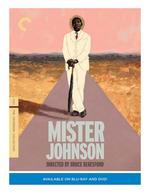 Mister Johnson (1990) A decade after he broke through with “Breaker Morant,” Australian director Bruce Beresford made another acclaimed film about the effects of colonialism on the individual. In a performance that earned him the Berlin Film Festival’s Silver Bear for best actor, Maynard Eziashi (“Bopha!”) plays the title character, a Nigerian villager eager to work as a civil servant for the British authorities, including a sympathetic district officer (Pierce Brosnan), in the hopes that it will benefit him in the future. Instead, his ambition leads to his tragic downfall. Mister Johnson, based on a 1939 novel by Joyce Cary, is a graceful, heartfelt drama about the limits of idealism, affectingly acted and handsomely shot.
Mister Johnson (1990) A decade after he broke through with “Breaker Morant,” Australian director Bruce Beresford made another acclaimed film about the effects of colonialism on the individual. In a performance that earned him the Berlin Film Festival’s Silver Bear for best actor, Maynard Eziashi (“Bopha!”) plays the title character, a Nigerian villager eager to work as a civil servant for the British authorities, including a sympathetic district officer (Pierce Brosnan), in the hopes that it will benefit him in the future. Instead, his ambition leads to his tragic downfall. Mister Johnson, based on a 1939 novel by Joyce Cary, is a graceful, heartfelt drama about the limits of idealism, affectingly acted and handsomely shot.
Ride the Pink Horse (1947) Hollywood actor turned idiosyncratic auteur Robert Montgomery (“Here Comes Mr. Jordan”) directs and stars in this striking crime drama based on a novel by Dorothy B. Hughes. He plays a tough-talking former GI who comes to a small New Mexico town to shake down a gangster who killed his best friend; things quickly turn nasty. “Ride the Pink Horse” features standout supporting performances from Fred Clark, Wanda Hendrix, and especially Thomas Gomez, who became the first Hispanic actor to receive an Academy Award nomination for his role here. With its relentless pace, expressive cinematography by the great Russell Metty (“All That Heaven Allows)”, and punchy, clever script by Charles Lederer (“His Girl Friday”) and Ben Hecht (“Spellbound”), this is an overlooked treasure from the heyday of 1940s film noir.
The Best DVDs and Blu-rays of 2011
The Best DVDs and Blu-rays of 2012
The Best DVDs and Blu-rays of 2013
The Best DVDs and Blu-rays of 2014
Need customized movie-related promotional products, such as pins, keychains, ribbons, etc? Then head on over to Custom Pins.


